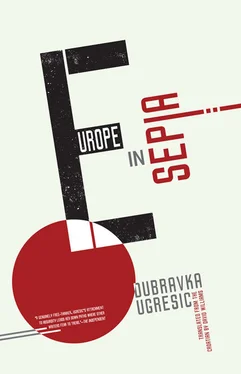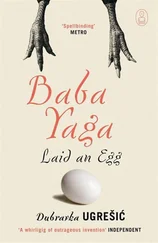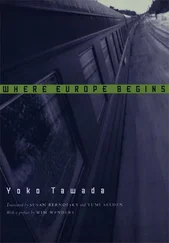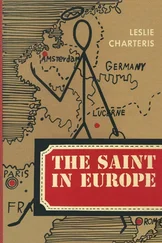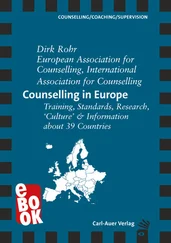The acquittal of the two Croatian generals, particularly that of Ante Gotovina, a figure pregnant with symbolism, closes the file on what Croats call the Homeland War, absolving the homeland of any lingering guilt, declaring it an innocent and brave victim, wiping clean every stain from its defensive war, and returning, for a moment, the shattered honour of a long roll of murderers, looters, arsonists, and thieves. The Hague verdict triggered a long pent-up national orgasm. Like Franjo Tuđman, who was fond of a pigeon or two, Gotovina released birds of peace, appealing to Croats to look to the future, calling to the “self-exiled” Serbs to return, and, in light of his acquittal, again affirming that his testimony to the Hague judges had been beyond reproach: “I live with a sense of satisfaction that my actions were those of an honest and dedicated military officer who gave his all in difficult circumstances.”
4.
Who is this Gotovina fellow? It depends on your sources. Glancing at the Ante Gotovina Foundation’s website, you won’t find much more than a handful of bank accounts soliticing donations. All these years the Foundation has been “fighting for the truth,” meaning Gotovina’s release. His wife, also a member of the Croatian armed forces, heads the Foundation. For the most part, the Croatian Wikipedia entry confines itself to Gotovina’s military role in the Homeland War. Other sites offer more eye-opening biographical details: that at sixteen Gotovina ditched school, and at seventeen made his way to France, where he joined the Foreign Legion. Having trained as a paratrooper, he served his unproblematic duty in problematic African countries. He then worked as a bodyguard, Jean-Marie Le Pen one of his clients. Sentenced to jail for a number of criminal activities, he fled first to Argentina, and then to Guatemala, where he trained right-wing paramilitary groups. Arrested on his return to France, he served but the briefest of sentences. He arrived back in Croatia in 1991, and soon rose to the highest military rank. Ten years later he was indicted by the Hague tribunal for war crimes committed during Operation Storm and, until his spectacular arrest in the Canary Islands in 2005, spent several years on the run. After seven years in pre-trial detention, Gotovina was acquitted on appeal, surprising many observers. A few months prior the Hague court had found him guilty and sentenced him to twenty-four years jail.
Ante Gotovina is a fairy tale about Croatian success. Many of the half-million Croatian veterans identify with Gotovina; he’s one of the guys. His is a story about a poor kid from a Catholic family, who flunks school, heads out into the big wide world, where, yeah, he gets up to a bit of mischief, but as a professional murderer in wartime and bodyguard in peacetime, he masters lucrative dark arts. The homeland imperiled, Gotovina made haste in returning to defend it. Today, happily married for the third time, he owns an imposing villa in Pakoštane, built by his friends, acolytes, and brothers-in-arms while he was behind bars. The local municipality made its own contribution to Gotovina’s familial bliss, gifting its favorite son the land, which sits in a pine forest on a quiet inlet fifty meters from the sea, adjoining the once prosperous Club Med complex where, according to an empathetic journalist, young Ante first acquired a taste for French culture. How much has this Croatian fairytale cost the Croatian taxpayer? No one knows; the figures are one of Croatia’s most closely guarded state secrets. A villa in Pakoštane is chump change, a little gift that keeps on giving. In any case, who’s ever heard of a national hero having to buy his own lunch? On the subject of lunch, local residents slaughtered a fattened calf and organized a folksy reception in his honor.
5.
For my young niece, no dots connect Homeland and Gotovina. The only thing she’s worried about is when’s this Gotovina guy gonna go away! This Gotovina guy is hogging every channel, and she can’t watch her cartoons. Her saying when’s this Gotovina guy gonna go away! simply means when can I watch Tom and Jerry again?
Yet in December, the two of us will together go over school stuff about Nature and Society. The final mid-year class is about the Homeland. We have to revise all its symbols, learn the national anthem and the like. For her benefit I try paying closer attention to the Croatian coat-of-arms. I wonder what a military ordinariate is, what this imposing new structure in Zagreb, a monster from Albert Speer’s archive of unrealized projects, actually does. The papers say that the Military Ordinariate, the construction of which was financed directly from the state budget, is now seeking new funds for a bigger cathedral. And meanwhile, four hundred thousand people are unemployed, another hundred thousand are employed but not being paid, almost thirty percent of the country’s four million citizens are on a pension, a half million of them pensioned veterans of the Homeland War. Half a million! A Dad’s Army of this size would make a country far bigger than Croatia tremble in fear. If we’ve got half a million retired on pensions, how many have we got on active duty? The Republic of Croatia’s armed forces are a complex beast, with so many different units it’s hard to keep track. And that’s not counting the legions of police. Like all military ordinariates, ours is a legitimate child parented by the Holy See and the Croatian church, an institution for the pastoral and spiritual care of men and women in uniform, soldiers and police. A military ordinariate is a kind of spiritual beauty salon, an institute for the Catholicization of the armed forces and the police, a work of alchemy — that of turning shit into gold. It works in Croatia, a country of small-time grifters. Priests are alchemists too, which just goes to show that everything is in its place.
6.
My acquaintance Piroška knows well the effect she has on people — men, women, girls, boys. A friend designs Piroška’s clothes, a modiste trying to infect Budapest with Lolita-style. Piroška is already thirty-something, but her striking, sleek figure and baby face work to her advantage. People are drawn to her the second they lay eyes on her, and it’s usually some time before they take their leave. The way she dresses, all those miniskirts, petticoats, the taut waist, ribbons in her hair, her bangs, buttons, and clownish pins, all make propinquity a must. People huddle around stroking her hair, ribbons, and bows. There’s nothing erotic in any of this, and Piroška knows that. She patiently grins and bears it all.
“People are weirdoes,” she says merrily. “We’re all weirdoes. .”
Every time Piroška gets ready to go out, I imagine an army of dwarves and dwarfettes attending to her, combing and braiding, weaving multicolored ribbons in her hair, ironing her petticoats, corseting her up, zipping, buttoning, and unbuttoning. . My little niece would give any thing to have Piroška for an aunt. She’d trade me and her whole collection of Barbies for a single Piroška.
I saw Piroška at a Budapest literary festival in late November, the venue a boat docked on the banks of the Danube. Festival guests had already dispersed by the time some ten thousand Hungarians gathered on Lajos Kossuth Square, protesting against Márton Gyöngyösi, the leader of Jobbik, the third biggest party in the Hungarian parliament. Gyöngyösi had declared the need to compile a list of Jews who posed potential security threats to the country. Seeing Budapest residents, their coats emblazoned with handsewn yellow stars in protest, was a harrowing experience. According to the city’s Holocaust Memorial Centre, between five and six hundred thousand Hungarian Jews perished in the concentration camps. Jobbik owes its rise in the polls to anti-Semitism and its open hatred of Roma, some seven hundred thousand of whom live in Hungary — and who don’t have any place else to go. Because Roma, well, everyone hates Roma: the Serbs, the Croats, the Czechs, the Slovaks, the Romanians, the Bulgarians, everyone. .
Читать дальше
